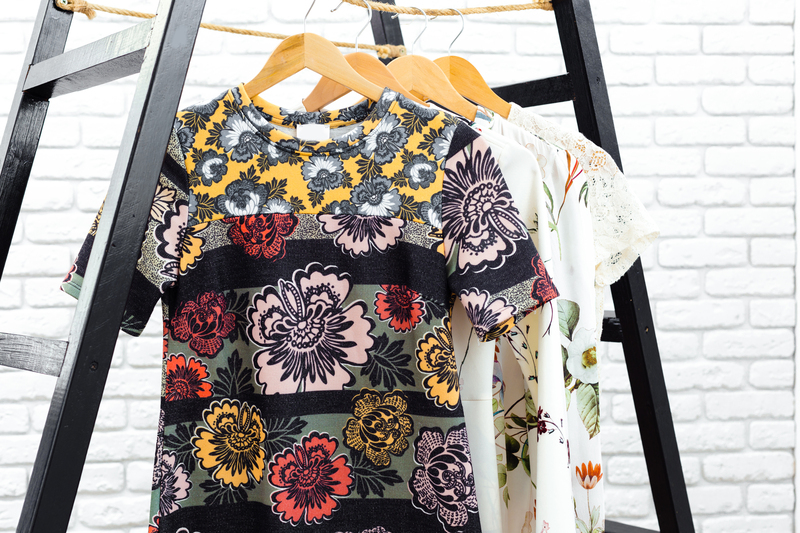Can You Put Pots and Pans in the Recycling Bin? A Comprehensive Guide
When it comes to eco-friendly living and reducing household waste, many people ask: Can you put pots and pans in the recycling bin? Sorting waste correctly can seem daunting, especially with everyday kitchen items. This in-depth article will answer your questions about recycling cookware, explain why it matters, and offer useful alternatives for sustainably disposing of old pots and pans.
Understanding Pots and Pans: What Are They Made Of?
To determine if you can recycle pots and pans in your curbside bin, it's crucial to examine what they're made of. Most pots and pans feature one or more of the following materials:
- Aluminum (often non-stick or anodized)
- Stainless Steel
- Copper
- Cast Iron
- Enamel-Coated Metal
- Ceramic or glass parts (occasionally used for handles or coatings)
Most pots and pans are designed for durability, with finishes that make them long-lasting - but not always easy to recycle.

What Do Recycling Centers Accept?
Recycling policies are local and can vary significantly based on where you live. Most curbside recycling programs accept basic household recyclables like paper, cardboard, plastic bottles, and metal cans. However, pots and pans don't fit neatly into these categories and are generally not accepted in the normal recycling bin.
Why Are Pots and Pans Not Typically Accepted?
- Size and Weight: Pots and pans are bulkier and heavier than cans or bottles, which can interfere with automated sorting equipment.
- Material Complexity: Many cookware items are made from mixed materials, such as metal bodies with plastic, wooden or silicone handles, or non-stick coatings that may not be recyclable.
- Contaminants: Old food residues or burnt non-stick coatings can contaminate recycling streams.
If you drop pots and pans into your regular curbside recycling bin, they are more likely to be pulled out and sent to landfill than to be recycled.
How Should You Dispose of Kitchen Cookware?
1. Reuse or Repurpose
Before you consider throwing cookware away, ask yourself: Can these pots and pans be reused? If they're still functional (even if they're a little worn), consider these ideas:
- Donation: Thrift stores and shelters may accept usable cookware.
- Community "Buy Nothing" Groups: Online platforms allow you to give items to neighbors in need.
- Creative Repurposing: Turn old pans into planters, storage bins, or art projects.
Repurposing is an eco-friendly solution and extends the life of your kitchen items.
2. Scrap Metal Recycling
If your cookware is beyond repair, the second-best option for recycling pots and pans is through scrap metal facilities. Here's what you need to know:
- Acceptable Materials: Most scrap metal recyclers accept aluminum, stainless steel, copper, and cast iron items.
- Preparation: Remove all non-metal parts (such as glass lids, plastic handles, or silicone grips) before dropping off items.
- Non-Stick Coatings: Some recyclers may not accept Teflon-coated pans due to chemical contamination risks. Always check with your local facility.
Find a local scrap yard or metal recycling center and ask if they accept cookware. Many do, and some may even pay for the metal by weight!
3. Manufacturer Take-Back Programs
Some companies offer cookware recycling programs. For example, TerraCycle partners with brands like Calphalon and GreenPan to collect and recycle used cookware, regardless of brand. These services often require you to mail in your old pots and pans and may carry a collection fee.
4. Municipal Bulk Waste Collection
If all else fails, you can place old pots and pans out with bulk trash collection. While this is less sustainable, at least it ensures safe disposal. Always check local regulations before leaving items curbside.
Special Considerations: Non-Stick, Ceramic, and Glass Cookware
Can Non-Stick Pots and Pans Be Recycled?
Non-stick cookware (like Teflon pans) presents a unique challenge. Most curbside and scrap metal recyclers refuse non-stick pans due to the chemical coatings. However, some specialty recycling programs (like those with TerraCycle) may accept them.
What About All-Ceramic or Glass Pots and Pans?
- All-ceramic and glass cookware (such as CorningWare, Pyrex, or glass baking dishes) cannot be recycled in standard glass bins. These items are made from heat-resistant glass, which melts at a different temperature and can disrupt glass recycling.
- Dispose of these through landfill, or repurpose as serving dishes, planters, or storage containers whenever possible.
Step-by-Step Guide: How to Recycle Your Old Pots and Pans
If you're determined to recycle pots and pans, follow this process:
- Check your local recycling guidelines online or call your municipal recycling authority.
- Separate out any non-metal components (remove handles, lids, or rubber grips).
- Sort cookware by material: aluminum, stainless steel, cast iron, copper.
- Contact a local scrap metal recycling center and confirm they accept household cookware.
- Drop off your separated piles and ask about current rates (some yards may pay cash for scrap metal).
Frequently Asked Questions
Should I put my old pots and pans in the blue bin?
No. Pots and pans should not go in the regular curbside recycling bin unless your city specifically allows it. Curbside programs are designed for smaller, simpler items like cans and bottles.
Can rusty or damaged cookware be recycled?
Yes, especially at scrap metal facilities. Rusty metal is still recyclable. Just ensure all non-metal parts are removed.
Will I get money for recycling my old cookware?
Sometimes! Scrap metal yards often pay by the pound, especially for aluminum, copper or stainless steel. Don't expect a windfall, but you'll help the environment and earn a little cash in the process.
What about non-stick pans or Teflon-coated cookware?
These generally require specialized recycling. Look for brand take-back programs or specialty recycling providers like TerraCycle.
Creative Repurposing Ideas for Pots and Pans
Before you toss your old cookware, consider these eco-friendly and fun alternatives:
- Planters: Drill holes and use them as garden pots for flowers or herbs.
- Serving Trays: Old baking trays can become serving or display trays.
- Storage: Use larger items to store cleaning supplies, kids' toys, or gardening tools.
- Wall Decor: Hang vintage pans and skillets on kitchen or patio walls for a rustic look.
- Bird Feeders: Turn upside-down lids or shallow pans into outdoor bird feeders.
The Environmental Impact of Proper Cookware Disposal
Why is it important to think twice before throwing pots and pans away?
- Waste Reduction: Cookware can take decades to break down in a landfill, especially metals and glass.
- Resource Conservation: Recycling metals saves significant energy compared to mining and processing new ore.
- Pollution Prevention: Proper disposal prevents chemical coatings, plastics, and heavy metals from leaching into soil and water.
Responsible recycling and repurposing helps create a more sustainable world - right from your own kitchen!

Keywords: Can you put pots and pans in the recycling bin, recycling pots and pans, recycle cookware, can I recycle old pots and pans, sustainable cookware disposal, scrap metal pans, donate old cookware, recycling centers for kitchenware.
Conclusion: Make the Right Choice With Your Old Pots and Pans
To summarize, you cannot simply put pots and pans in your regular recycling bin. However, with a little effort, you can recycle metal cookware at a scrap yard, use manufacturer take-back programs, donate usable items, or repurpose them creatively. Always remove any non-metal components and check guidelines for non-stick or specialty materials.
- Don't: Put pots and pans in the curbside bin unless your city specifically accepts them.
- Do: Take them to a scrap metal recycler or specialty recycling service.
- Do: Donate or repurpose usable cookware whenever possible.
With the right approach, you'll help protect the environment and keep your kitchen eco-friendly!